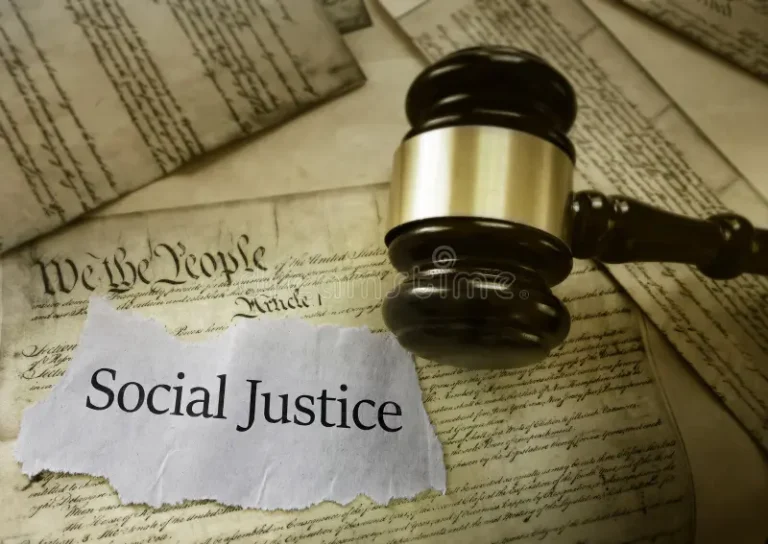Social Justice Issues in Politics
Social justice issues in politics focus on equality, participation, diversity, and access to resources. They include fighting against systemic barriers to people’s well-being, such as wealth and income disparity, racial injustice, and healthcare inequality.
The societal effects of unaddressed social injustice are wide-ranging and have far-reaching implications for society.
Systemic Discrimination
In order for society to thrive, individuals must have access to basic needs like food, shelter and medical care. Social justice activists spend a great deal of time fighting to ensure that all members of the community have access to these essentials, regardless of their income level. A great example of this is the creation of the NHS, which was one of the first free-at-the-point-of-use healthcare systems that anyone in the country could access.
Social injustices can be caused by prejudices based on race, gender, age, sexual orientation, religion, political views, wealth, culture, mental or physical abilities and more. These discriminatory attitudes and practices can prevent people from attaining a full range of opportunities that will allow them to live a healthy, happy life.
For example, racial injustice in the US leads to disparities in health outcomes such as life expectancy. These disparities can be caused by a number of factors including environmental factors, socioeconomic status, housing and even police practice. A social justice movement that fights to end racial injustice must take into account all of these issues in order to be successful. This is known as critical theory or intersectionality, and it follows the lead of Marxism in calling for a complete reorganization of social institutions to put an end to oppression.
Economic Inequality
Economic inequality is the underlying problem that many social justice issues seek to address. It’s what fuels movements like the Civil Rights Movement, Women’s Suffrage Movement and Disability Rights Movement. People who have less money or power often struggle to get access to the resources that they need for a healthy and productive life. The gap between the rich and poor makes it hard to live with dignity in any society.
The solution is to make sure that all voices are heard when addressing major societal problems. When the voices of the most vulnerable and marginalized are ignored, solutions that attempt to address these problems are likely to fail or even make things worse. Participation should be promoted, encouraged and rewarded so that everyone gets the opportunity to speak up for their rights and needs.
Public administrators must be aware of the impact of their policies on the lives of their citizens. They must strive to ensure that all voices are heard in the policy-making process. They can do this by carefully considering who will be part of the decision-making process and purposefully inviting advocates from groups that are not represented. They should also be mindful of how their own explicit and implicit biases may hinder their ability to help all members of society succeed.
Access to Healthcare
When it comes to a social justice perspective on healthcare, the goal is to ensure everyone has access to essential care. This includes access to the medical system, but also to other basic resources that can impact health like housing, food, education and work opportunities.
These are sometimes referred to as social determinants of health and are key to ensuring people can live long, healthy lives. In the case of healthcare, these factors could include the ability to afford treatment, the availability of mental health services and the quality of public and private medical facilities.
The philosophy of social justice is often associated with left-leaning political parties and ideologies. It’s based on the idea that all human beings have a basic innate worth and deserve to have their individual rights protected. This can be achieved through a variety of social and economic policies, such as wealth distribution, redistribution, government subsidies, protection of legal status in employment and more.
Physicians see these issues first-hand. They’re aware of the disproportionately high number of patients who can’t afford the best care because of poverty, lack of insurance and other societal factors that impact their ability to access necessary healthcare. As such, physicians are uniquely positioned to be advocates for their patients and champions of social justice in the healthcare arena.
Racial Justice
Racial justice involves combating systems of oppression that result in unfair advantages for some and disadvantages for others based on their skin color. It goes beyond stopping individual cases of racism and focuses on addressing structural inequality through projects such as racial equity, anti-racist education, and free-at-the-point-of-use healthcare systems.
These types of projects are essential to the pursuit of social justice. Without them, progress toward equality may be limited and the lives of people disproportionately affected.
For example, Black people are disproportionately represented in the criminal justice system, accounting for 22% of fatal police shootings and 47% of wrongful conviction exonerations in the US. While this is not a direct result of their criminality, it is a consequence of the way our society has been structured by structural racism and racial privilege.
In order to tackle this issue, public administrators must be intentional about the policies they create. This means including people with diverse backgrounds in the policymaking process, inviting advocates for underrepresented groups, and offering opportunities for long-term leadership positions in government. This is important because if the voices of those most affected by an issue aren’t heard, solutions are unlikely to be successful and can make things worse.
Gender Equality
Gender equality, which intersects with racial justice and sexual rights, is an important aspect of social justice. Women and girls face many obstacles to achieving equal opportunities in society, including wage gaps, limited access to education and reproductive rights. They also struggle to find jobs and navigate the Covid-19 pandemic. Advocates say gender equality is a key aspect of social justice because it is the right of every person to live in freedom and dignity.
Social justice activism requires that all members of a community have a chance to participate in policy-making processes. Unfortunately, many governments create policies with the best intentions but exclude large sections of their communities. Public administrators can combat this problem by purposefully inviting individuals from underrepresented groups to policy-making conversations, or creating new programs to encourage participation in government.
Ultimately, it takes a great deal of effort to maintain fair and just laws and policies. However, the benefits of reducing inequality and improving people’s lives outweigh the costs of maintaining the status quo. Social justice theories are an essential element of legal reform efforts and should be integrated into all types of work. For example, employees of government agencies should be mindful of explicit and implicit biases that affect how they allocate resources for their communities.
LGBTQ+ Rights
For many people who identify as LGBTQ, legal and political activism has brought substantial progress. The movement to advance LGBTQ rights has seen more rapid success than any other civil rights struggle in our country’s history, but that progress is fragile.
Activists who use social justice as their organizing framework envision a society that values fairness and equity for all people, in all areas of life, regardless of sex, ethnicity, age, wealth, religion, cultural heritage, or social status. Moreover, activists believe that such a society would recognize and respect differing ethnic, cultural, and gender identities among citizens.
The movement to advance LGBTQ rights has seen significant progress, from the repeal of Proposition 8 to the Supreme Court’s affirmation of same-sex marriage. However, powerful opposing forces continue to target nondiscrimination protections and create exceptions through constitutional and statutory law.
These efforts to roll back the gains of the past several years can be traced through ongoing cases involving free exercise, religious freedom, and Title VII’s coreligionist exemption—and they can also be seen in daily microaggressions that demean, hurt, and ostracize LGBTQ people. As the new administration takes office, it must work to untangle and dismantle the harms of the previous four years and initiate proactive policy solutions that advance LGBTQ rights.
Environmental Justice
Social justice is a concept that promotes equality and fairness in the distribution of resources and opportunities in society. This includes ensuring that all people have access to quality healthcare, education and employment. It also means that all people have an opportunity to voice their concerns and opinions in decision-making processes that impact them.

In the late 1970s, when government agencies in Warren County, North Carolina were debating where to store 6,000 truckloads of soil laced with toxic PCBs, residents of rural, low-income and mostly black communities demanded action. Their fight inspired a new faction of the civil rights movement known as environmental justice.
Over the decades, activists have fought for environmental justice through a combination of activism and policy reforms. These include protests, marches, petitioning, advocacy, coalition building, organizing, community empowerment and direct actions. They have also pushed for change in the policies of federal, state and local governments.
The Biden-Harris Administration is committed to confronting longstanding environmental injustices and inequities, promoting fair treatment of communities overburdened by pollution, and increasing the participation of these communities in environmental decision-making. As part of this commitment, the Administration has launched or strengthened offices, strategies and initiatives focused on environmental equity.



